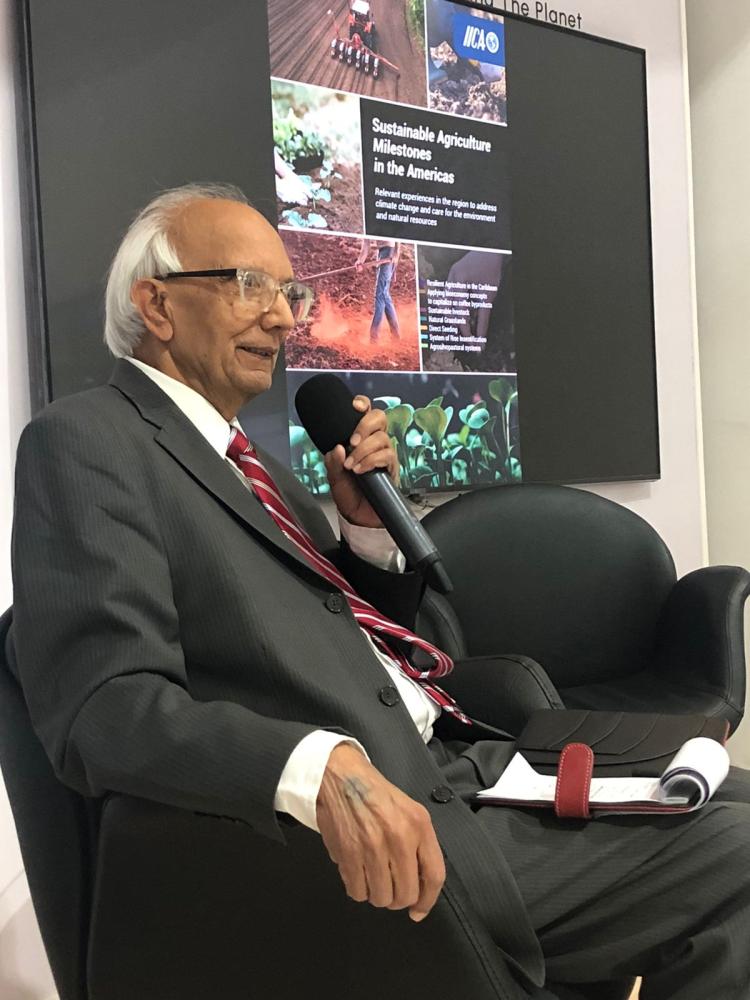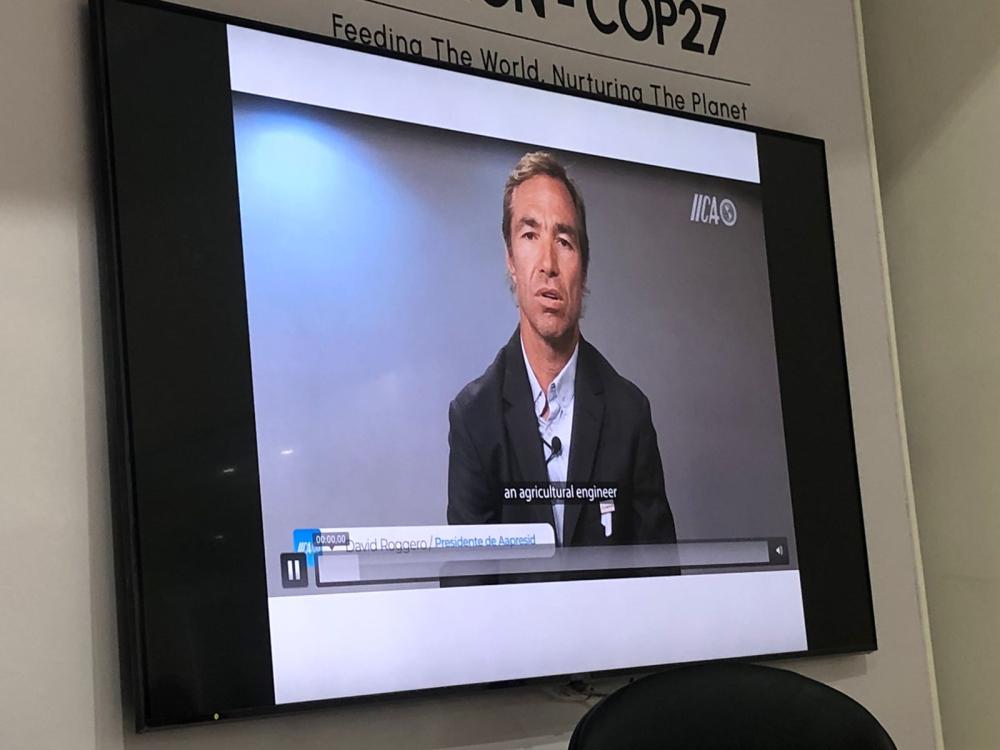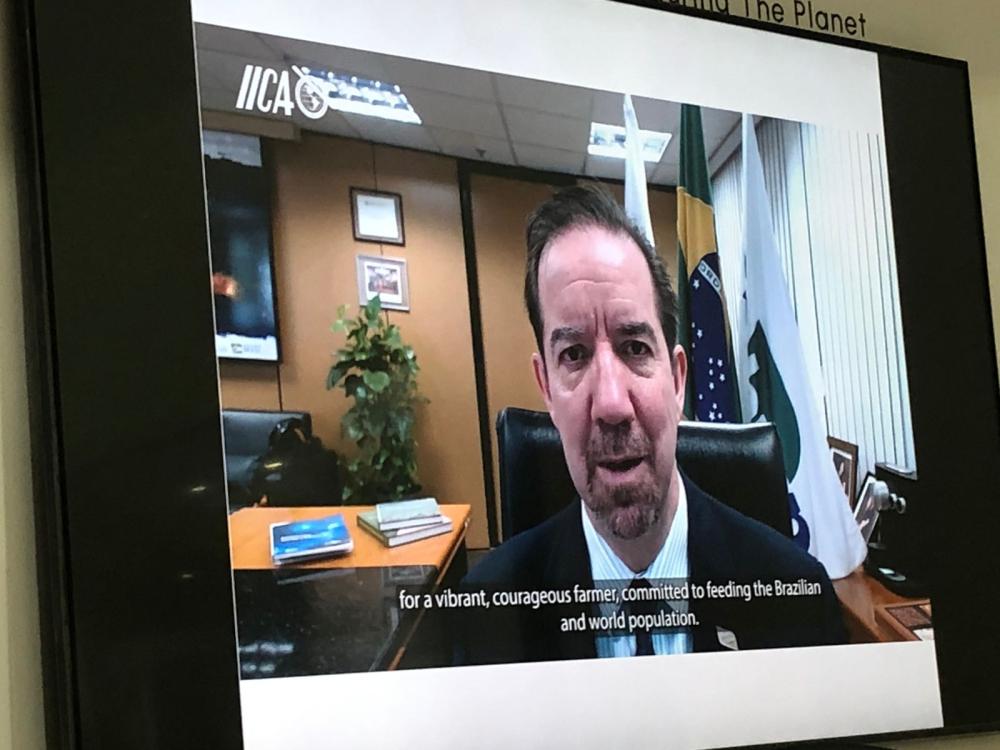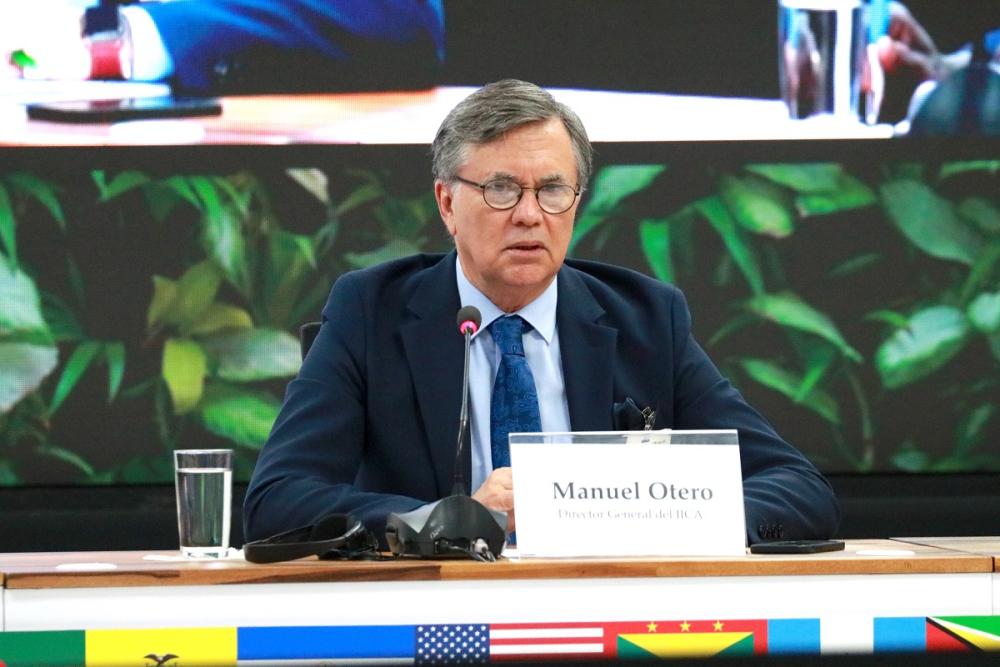At COP27, Rattan Lal, AAPRESID, EMBRAPA and IICA highlight Sustainable Agriculture Milestones in the Americas and the wholehearted commitment of the region to natural resource protection

Sharm El-Sheikh, 15 November 2022 (IICA) – Rattan Lal, the world’s leading authority on soil sciences, and Manuel Otero, Director General of the Inter-American Institute for Cooperation on Agriculture (IICA), made a presentation at COP27 in Egypt, highlighting the most important successes of the agriculture sector of the Americas in combatting and mitigating climate change and ensuring environmental and natural resource protection, which is an approach to which all countries of the region have committed.
The event was a presentation of the document “Sustainable Agriculture Milestones in the Americas” and also featured messages from David Roggero and Celso Moretti, presidents of the Argentine Association of Direct Seeding Farmers (AAPRESID) and the Brazilian Agricultural Research Company (EMBRAPA), respectively, who stressed that the agriculture practiced in the region is not only environmentally friendly and committed to natural resource protection, but it also feeds at least 2 billion of the world’s people.
The presentation took place at the Home of Sustainable Agriculture of the Americas pavilion that IICA has installed at the Sharm El-Sheikh Convention Center, where the 27th Conference of the Parties to the United Nations Framework Convention on Climate Change is underway. The document is divided into seven chapters that recount different successful experiences in the rural areas of the Americas in recent years, which the protagonists themselves relate in great detail, with scientific rigor, and in a didactic manner.
Roggero explained that, “Our common objective is to present and demonstrate that agriculture, far from being instrumental in climate change, can provide a solution to this phenomenon that is affecting us so greatly. Agriculture is the foundation for peace, sustainable development and food security. At AAPRESID, we are promoting and driving sustainable production systems for fiber, food and energy, based on science, innovation and collaborative efforts, but primarily based on the direct seeding system, known worldwide as conservation agriculture”.

This IICA document relates the history and experiences of the conservation agriculture system, which is based on three major pillars: zero tillage; permanent soil coverage, both with live vegetation and crop residue; and proper and intensified crop rotation.
“At the same time”, said the AAPRESID president, “we must also pay attention to the nutrients that are removed during each harvest, in each food that is produced through the soil, ensuring that we responsibly use all external inputs, be they phytosanitary products, fertilizers or additives in general”.
In addition to senior officials from the ministries of Agriculture of the Americas, the presentation was also attended by Karen Ross, Secretary of the California Department of Food and Agriculture, and by the prestigious Brazilian researcher, Carlos Nobre – a renowned scientist and meteorologist who has devoted his life to studying the Amazon region.
The President of EMBRAPA welcomed the opportunity to discuss in a sphere such as COP27 “agriculture’s strategic role in building peace, as well as in guaranteeing food security and sustainable development”. He also underscored science’s contribution to making his country one of the world’s food baskets, when just a few decades ago it still had to import basic grains to feed its population, which is an achievement in which EMBRAPA itself played a key role.
Moretti also stated that, “Research has assumed the responsibility of finding solutions for a vibrant, courageous farmer, who is committed to feeding the Brazilian and global population. What we set out to and managed to do some fifty years ago was to use Brazilian science to expand the supply of food, fiber and bioenergy; reduce the price of food; and improve the sustainability of our agriculture sector. At a time like this when countries are discussing solutions to significant threats, such as food shortages and climate change, Brazil has a significant experience to share”.
Otero welcomed the fact that—albeit belatedly—agriculture is taking on a leading role in COP27 discussions, given its key role in food security and natural resource use.
“Our countries are doing many things right in terms of environmental sustainability. These cases, of which there are many more throughout the hemisphere, are proof of that”, said the Director General of IICA.
“Sustainable agriculture and the agrifood systems of the Americas play a strategic role at the global level and within the countries of the region. They play an irreplaceable role in socioeconomic recovery and sustainability, as well as in food security. They also make a decisive contribution to harmonious economic and social development”, added Otero.

Lal, Director of the Center for Carbon Management and Sequestration (CMASC) at The Ohio State University and IICA Special Envoy to COP27, celebrated the fact that, “At COP27, we are thinking of agriculture as a solution, whereas, at COP26, the words agriculture and soils were not even mentioned”.
COP27 brings together heads of state and government, ministers and negotiators, climate activists, mayors, representatives of civil society and private organizations, for what is considered the most important annual meeting on climate action, where measures are expected to be adopted that are essential for tackling the climate emergency.
IICA and Lal, who co-lead “Living Soils of the Americas”—an initiative that links science, public policies, the private sector and work to rehabilitate the Hemisphere’s degraded soils, which are threatening the position of Latin America and the Caribbean as the guarantor of the world’s food security—shared examples of conservation agriculture practiced in the Americas.
Targeted at both non-specialized and expert audiences, the document provides information about direct seeding (or conservation agriculture), the System of Rice Intensification (SRI), agrosilvopastoral systems, natural grasslands, the use of coffee by-products, sustainable livestock production, and good practices now being widely used in Caribbean countries.

These are successful experiences of the agriculture sector across the Americas, which is beginning to transition towards more inclusive, resilient and sustainable agrifood systems, based on the principle of producing more with less.
With this new and valuable material, IICA aims to ensure that agriculture in the Americas takes center stage at in this year’s United Nations Climate Change Conference.
The presentation of the document also seeks to contribute to agriculture being regarded as a core element of the solutions to climate change and of the efforts to transform global agrifood systems through a science-based process and with farmers as key players.
These examples of how productivity can be balanced with caring for the environment that IICA is presenting to the world demonstrate that concern for the sustainability of agriculture in the Americas has been translated into action.
As the document shows, the continent has generated an invaluable amount of scientific knowledge related to food and nutritional security, agriculture and innovation, and their relationship to climate change.
More information:
Institutional Communication Division.
comunicacion.institucional@iica.int